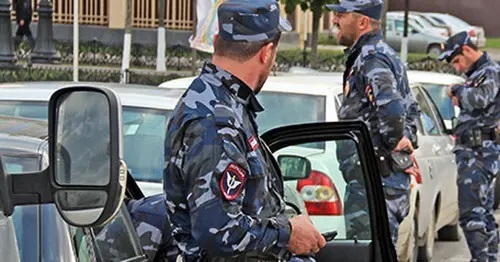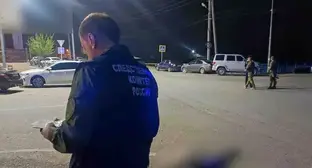
22 January 2022, 19:14
Analysts reproach Chechen law enforcers for violating Russian MIA's subordination
Most likely, law enforcers from Nizhny Novgorod had known about the pre-planned abduction of Zarema Yangulbaeva by Chechen policemen, but they didn't dare to oppose them, since law enforcers in Chechnya, while bypassing Russian laws, obey directly the head of Chechnya, Ramzan Kadyrov, and not the Russian Ministry of Internal Affairs (MIA), the human rights defenders interviewed by the "Caucasian Knot" have noted.
The "Caucasian Knot" has reported that on January 20, 2022, the CaT reported that Zarema Yangulbaeva, the wife of the federal judge, Saidi Yangulbaev, was abducted, in unconscious state, and taken away in cars with license plates bearing the region code corresponding to Chechnya. The head of Chechnya, Ramzan Kadyrov, has confirmed that Zarema Yangulbaeva had been taken to Grozny and stated that the woman had already "earned a criminal article for herself." The Yangulbaevs are waiting for a place "in prison or in the ground," Kadyrov has threatened.
Cases when law enforcers from Chechnya took away people from other Russian regions have occurred repeatedly, while local law enforcers fail to react, Oleg Orlov, a human rights defender and a board member of the "International Memorial"*, has stated.
Local law enforcers usually explain their behaviour by the fact that their Chechen colleagues come with some resolutions and instructions: to detain either some suspect in a criminal case initiated in Chechnya or a witness thereto. And everything happens as if within the framework of the law, while locals allegedly have no reason to interfere in the legitimate actions of their Chechen colleagues, Mr Orlov has added.
Russian legislation is inapplicable in Chechnya; its power units are formally parts of all-Russian structures, but in reality they obey local authorities only, Oleg Orlov has noted. "Given the current norms, law enforcers don't subordinate to governors at all; a governor can't appoint the head of the local MIA branch, for example. But in Chechnya it's different: local law enforcers subordinate and obey exclusively Chechen authorities," Mr Orlov has concluded.
The reaction of law enforcers from Nizhny Novgorod to actions of their Chechen colleagues was sluggish because formally they were legal, Igor Kalyapin, the head of the "Committee against Torture" (CaT)*, has explained. "They were somehow procedurally documented; they had some investigator's resolution about a forced delivery of Zarema Musaeva (her maiden surname) for interrogation to Chechnya. No one dared checking the legality of this decision here (in Nizhny Novgorod)," Mr Kalyapin told the "Caucasian Knot" correspondent.
*The organization has been put by the Russian Ministry of Justice on the register of the non-commercial organizations performing the functions of a foreign agent.
This article was originally published on the Russian page of 24/7 Internet agency ‘Caucasian Knot’ on January 22, 2022 at 08:30 am MSK. To access the full text of the article, click here.
Author: Alena Sadovskaya Source: CK correspondent





Комментирование через Кавказский узел